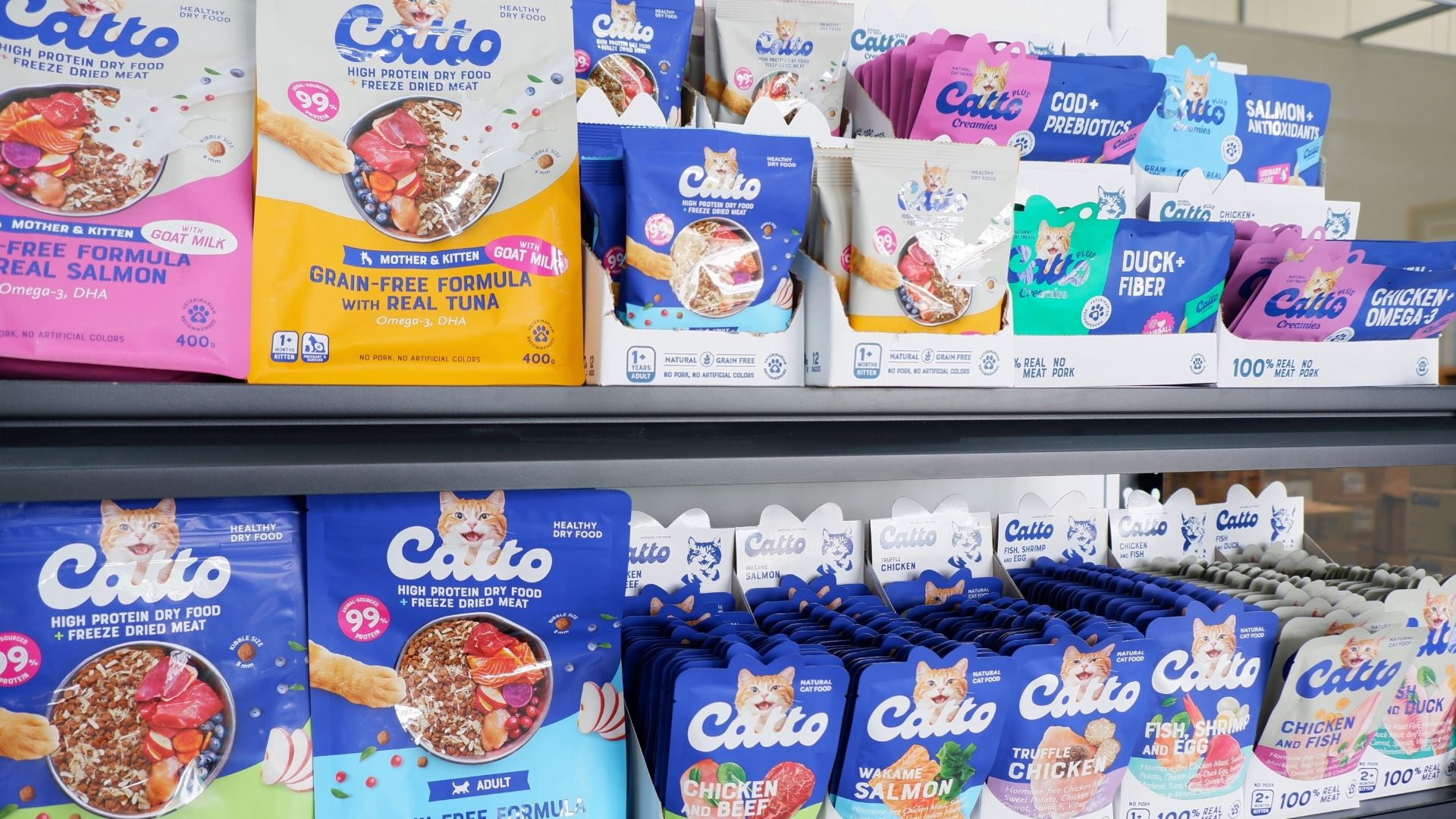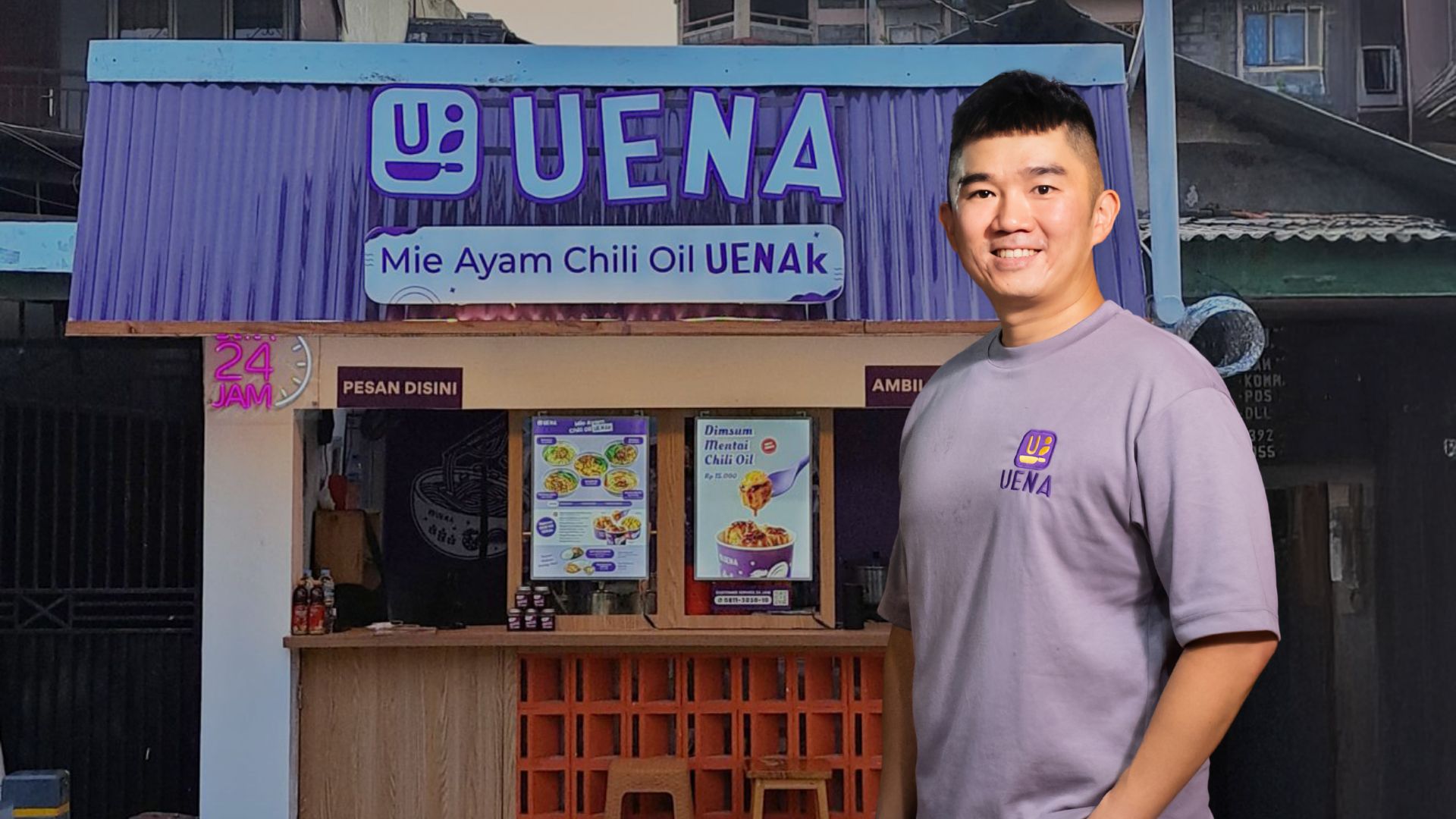Imagine this: You are a dog owner of over five years. Over the years, you wanted to give your dog the best nutrition, but could not even after trying countless pet food brands on the market due to your dog’s allergies and specific dietary needs.
For Stephani Herman, it was a reality that became the story behind Compawnion’s inception.
Across Indonesia and Southeast Asia, a quiet revolution is taking place in households. The relationship between people and their animals has profoundly shifted, marking the rise of the pet humanization trend.
Today’s owners are “pet parents,” and their companions are cherished as integral family members, deserving of the highest standards of care, wellness, and, most critically, nutrition.
This cultural shift in the Southeast Asia consumer sector is powering an explosive economic boom. The pet care market growth in Indonesia is undeniable, with the country’s pet food market revenue projected to grow annually by 8.46% (CAGR 2025-2030).
This is part of a larger regional trend, with the Southeast Asian pet care market’s value already hovering around US$9 billion and expected to climb at a CAGR of ~12, according to a Redseer report.
But this growth is not just about volume; it is about a demand for quality. As disposable incomes rise, these new pet parents are scouring the market for premium, transparent, and scientifically-backed products, moving away from mass-market options.
Answering this call is Compawnion, an East Ventures-backed D2C company founded by pet parents who turned their personal stories into a nutritional mission.
A letter from frustrated pet-parents
Like Stephani shared, “It began with frustration.”
The Co-Founder and CEO of Compawnion, a Jakarta-based pet food D2C company, has an older female dog, and she “simply wouldn’t eat unless [Stephani] cooks real meat for her.”
Her co-founders, Valerie Amintohir (Chief Product Officer) and Tania Suganda (Chief Marketing Officer), were facing their own challenges. Their dogs were allergic to almost everything, and over 40 different pet food brands could not help. Stephani recalled that the long-time friends even had a checklist to keep track of all the brands they had tried.
Their furry friends showed distressing symptoms: low energy, dull coats, constant shedding, and severe digestive issues.
The reason behind it was simple, really, but quite shocking nonetheless: nutrition.
This revealed the fundamental gap in the market, an entire industry with massive demand but a profound lack of accessible, trustworthy, nutritious, science-based pet food.
She described several brands claiming to be “grain-free,” but clearly listing grains in their ingredients, or cat food advertised at 28% protein that, when tested in their own lab, contained only 24%.
This is the void Compawnion was built to fill. By being locally-made, embracing the ingredients, and using biologically ideal formulation, Compawnion makes it their life mission to bridge this gap.
It’s not for pets to survive; it’s for pets to thrive.
— Stephani Herman
Inside Compawnion’s kitchen
Compawnion’s philosophy is built on transparency and quality—upholding a “non-negotiable” list of banned ingredients in its products; many of which are common in other mass-market brands.
First, and most importantly, is a hard “no” to by-products. For example, when it comes to chicken, it is the chicken’s beaks and feathers that are blended together. The label might look tempting, showing high protein levels, but quality-wise, it actually “does nothing to the animal’s health.”
Next on the banned list are artificial preservatives and coloring, as they might affect pets’ health in the long term. Compawnion’s products are heavy on minimizing these chemicals.
The secret to this “no-preservatives” recipe lies in the trademarked Sterizero™ technology, leveraging precise temperature to eliminate bacteria and harmful pathogens. In fact, Compawnion is one of the first, if not the only, local pet food brands to use the cutting-edge Sterizero™ technology.

Finally, Compawnion rejects common fillers like corn, wheat, and soy. These ingredients are often used as cheap binders to add volume and make the nutritional analysis appear “full” on labels.
“Cats—carnivores—cannot digest most carbohydrates as well as omnivores like dogs. Their bodies simply lack the essential enzymes needed to break down carbs and derive nutritional benefits from them,” explained Stephani.
What truly differentiates Compawnion’s premium pet food production, however, is its scientific backbone. “Our co-founder, Valerie, is a canine nutritionist. And under her wing, Fiona is a feline nutritionist—one is an expert in dogs, the other in cats,” Stephani beamed.
Moreover, Compawnion has accomplished NKV Level 1 Certification (export quality), and its products are regularly lab-tested to ensure they are free from Salmonella, E. coli, and Clostridium.
While other players simply find a vendor in China or Thailand and resell their products under their brands, Compawnion takes pride in truly understanding what is ideal for pets and staying true to its commitment.
This commitment was put to the test recently. “We had one incident where, due to human error, two recipes—lamb and rabbit meat—got mixed up.”
For many companies, this “safe” (but incorrect) batch might have been sold. Nonetheless, Compawnion rejected the entire batch for public sale.
“We cannot sell it, of course,” Stephani stated firmly. “Because we would not be true to our quality, just like lying to our customers. More importantly, many dogs and cats have severe allergies. A dog allergic to lamb might only be able to eat rabbit. The health impact could be concerning.”
The batch, which was perfectly nutritious otherwise, was repackaged and sold at a discount to internal employees whose pets are allergy-free. It was a costly decision that perfectly illustrates the company’s “trustworthiness”-first principle.
The brands: Why Catto is capturing the cat market
Compawnion’s portfolio includes flagship brands Pawmeals, UGO Dog Food, and its breakout star, Catto Cat Food. The focus on felines was strategic.
“Why cat food? 47% of Indonesian pet owners have cats, while 10% have dogs, and the rest comprises reptiles, birds, and so on,” Stephani explained, backed by market research from Rakuten Insight.
Despite this, Stephani saw that existing products were not “suitable for their needs.” Catto was designed to be the solution, built on three key differentiators:
1. Designed with purpose
Stephani revealed that the firm has put many considerations into designing the product, down to the kibble size, as “cats prefer it that way, it is easier and softer to chew.”
Most notably, Catto includes real freeze-dried chicken breast mixed in with the kibble. “This is to educate the market and the cats themselves. By giving them real meat, we show them what real nutrition looks and tastes like,” she explained.
2. Ideal formulation
This is where Compawnion’s high standards shine. While global market standards for minimum protein in cat food sit at 26%—according to the Association of American Feed Control Officials (AAFCO) and European Pet Food Industry Federation (FEDIAF), Catto “over-delivers” by giving 40% of protein.
3. High-integrity ingredients
That 40% protein is not plant-based. As previously mentioned, cats are carnivores; hence, cats cannot optimally digest tempeh- or mushroom-based proteins. Catto’s variety of products contains 85% real animal-based protein.
“The combination of purposeful design, ideal formulation, and high-quality ingredients is the backbone of drastic change, or I can say improvements, in the cats.”
The results are measurable: no more shedding and hairball puking, higher—but balanced—energy levels, and most visibly, “better poop,” as these foods are better digested by cats.
Indonesia first, regional stage next
Competing against massive multinational brands is not an easy feat, but Stephani believes Compawnion has two key advantages: speed and localization.
Keeping their focus on Indonesia, Compawnion quickly catches on to new trends or market needs. Their relevancy also allows them to be more precise and in tune with local customers.
This includes their supply chain. It is not 100% local, though; they import Australian beef instead of Indonesian beef, which is not accepted in all countries. A strategic move, so to speak, considering future exports planned.
But their local partnerships are deep, such as in rabbit sourcing, where they partner directly with domestic farmers.
With a solid foundation in Indonesia, Compawnion is looking at the broader rising pet ownership in Southeast Asia.
After launching their flagship products, the company wants to focus on 100% distribution in Indonesian pet shops.
“Next, we are looking to export to ten Southeast Asian countries.”
“Other Southeast Asian markets are actually more premium than ours; the price per package is higher,” she noted. “So, our premium product will be seen as very affordable and ‘worth it’ there.”
For Stephani, the final message to pet parents in Indonesia is simple and cuts through the marketing noise.
“Sure, there are many more expensive options [to our product], but that does not guarantee the quality,” she stated.
“It is about credibility and trustworthiness. We will always be honest and maintain our quality up to our super high standard, which is far beyond the international minimums. That is our promise to you.”
Discover more about our stance on D2C startups here.








